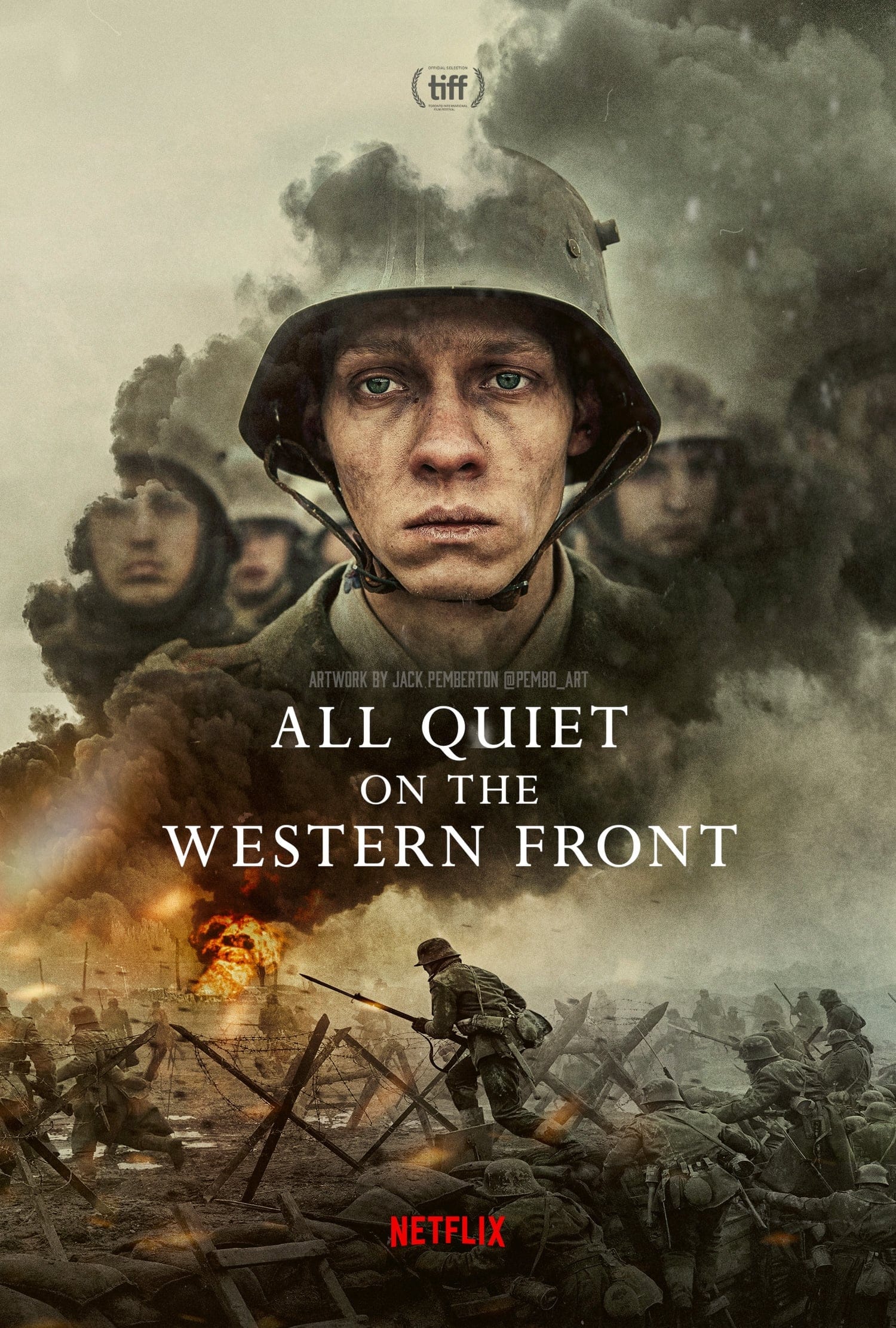All Quiet on the Western Front
Perfunctory and uninspired apologia.

When war breaks out in Germany in 1914, Paul Bäumer and his classmates quickly enlist in the army, eager to serve their fatherland, but their noble dreams are dashed by the horrible reality of war.
This version of All Quiet on the Western Front is the first German-made movie version of the German novel about WWI, published in 1928. The first movie, in 1930, was American, and it was considered so powerful it might deter future wars, but… no. The second version, in 1979, was also American, starred John Boy Walton and felt like a TV movie. The newest version is loud and ‘splodey, and for some reason, much like Maverick and Avatar 2, it somehow got a Best Picture nomination, but The Woman King did not.
So, in a modern American context (and also in a German one) this film feels apologetic. Much like how Gone With The Wind valorizes Confederate officers riding off to lost causes, the POV of a German soldier is about creating empathy through the nobility of the common man. This is done by centering someone, a regular, everyday, salt o’ the earth type person, someone who is pure of heart, as they are swept up in the tides of global politics, and battered on the rocks of history, and this ill-treatment is then used as a stand-in for the way their people in general were treated. It’s done here specifically to imply that this greater German ill-treatment post WW1 resulting in the rise of Nazis is a reasonably expected end result, both by basically stating this as outright fact during the armistice negotiations between France and Germany, but also by showing how Paul, the film’s centered good man was “punished” unjustly. This is the way the Treaty of Versailles is often cited, often by the same White People in this country who try to blame the actions of the Mean Northerners after the Civil War for the racism they still harbor to this day… “If only France had been nicer to us Germans, right? Look what they made us do.”
Was that the original intent of the book as well? To explain? To excuse? To justify? Many white Americans, famously including the Bushs, openly supported Germany, at least until Pearl Harbor made it unfashionable, so maybe. White America is certainly doing the same with the January 6th Insurrectionists now, so who can say? Of course, the mere creation of art is a political act, so maybe at this point, the original intent doesn’t matter either way, only what this version of the film is saying…
Which is pretty much… nothing.
This isn’t really a bad film, it’s fine, well-made, a little long, but still, fine… and also familiar. Too familiar. In fact, even if this film wasn’t a remake devoid of new insight—which it 100% is—it’d feel perfunctory. There’s nothing “bad” here, no great cinematic or social sin to rail against, other than the basic nature of it being apologia, but there’s also nothing new here either, it’s really more spectacle than message, and even that spectacle feels like we’ve seen it all before.
It’s well-made. It’s good looking. It’s perfunctory. And at that point, you have to ask? Why bother? Like war itself… what is it good for?
